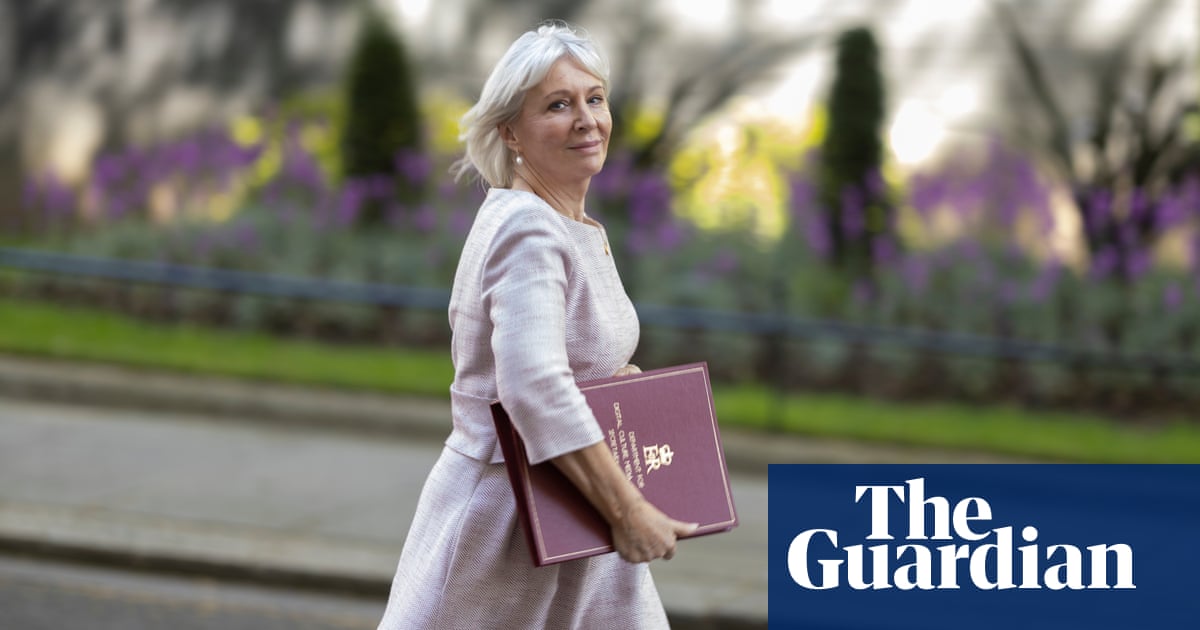
The culture secretary, Nadine Dorries, has pressed ahead with the appointment of former Tory parliamentary candidate Orlando Fraser to chair the Charity Commission, despite his rejection by an MPs’ scrutiny committee.
The news that Dorries had ignored the cross-party group of MPs to appoint Fraser was slipped out in a brief statement by the Department for Digital, Culture, Media and Sport (DCMS) early on Friday evening.
The select committee said in its pre-appointment scrutiny report this week it could not endorse ministers’ “slapdash and unimaginative choice” of Fraser for the £62,000 a year job as head of the charities regulator in England.
But ministers indicated they “respectfully disagree” with the committee’s views, emphasising MPs do not have a right of veto over the post. They consider MPs had done a disservice to what they view as Fraser’s strengths.
The committee chair, Tory MP Julian Knight, said that Fraser’s swift endorsement, and that of the new Ofcom chair, Michael Grade, who the committee had also expressed reservations about, showed the public appointments process was “broken”.
The National Council for Voluntary Organisations called Fraser’s appointment disappointing. “The government must look again at this process and work to ensure that future chairs have the backing of parliament,” it said.
It is the second time in a row that the government has ignored the wishes of parliament in selecting the commission chair, a post seen by some ministers as a key appointment in the context of their pursuit of “anti-woke” culture wars.
In 2018 the then culture secretary Matt Hancock overrode the DCMS committee when it rejected the appointment of Tory peer Lady Stowell on the grounds she had no experience and lacked “real insight, knowledge or vision”.
Stowell subsequently proved unpopular with the charity sector, which felt she unfairly targeted campaigning charities. Stowell said charities that pursued “politically contentious” issues could expect scrutiny from the commission, even if they acted within the law.
After a spate of controversies in which the likes of the National Trust and Barnardo’s were investigated – and cleared – by the commission, the previous culture secretary Oliver Dowden said last year the regulator’s next chair should be prepared to pursue charities which stray into so-called “woke” and “political” activities.
Fraser was clear in his appearance before the committee last month that he would be independent of government, and not allow the regulator to be dragged into media and government-led “culture wars”.
He told MPs: “We will not be an arm of government in any way at all about that kind of issue. All we will ever do is look at the facts and decide the facts based on charity law.”
The DCMS committee said on Thursday it had no grounds for concern about Fraser as an individual – it described him as “likely competent” – but had serious reservations about the selection process, including the lack of diversity in the shortlist.
Fraser was not the government’s first choice after being interviewed for the £62,000-a-year job in the autumn. However, he was shortlisted, and when the preferred candidate, Martin Thomas, quit the post days after being approved by the committee in December, Fraser was invited to step in.
The committee was keen that the appointment process be re-run, not least to ensure that potential candidates could be drawn from wider and more diverse backgrounds. Ministers had also indicated at the time that they had been disappointed at the lack of diversity.
Educated at a private school and Cambridge University, Fraser is a white, upper middle-class barrister. He is the son of the late Tory MP Sir Hugh Fraser and the writer Lady Antonia Fraser. His grandfather was the Labour peer Lord Longford.
Fraser, who stood unsuccessfully as a Tory candidate in North Devon in the 2005 general election, told MPs had not been involved in party politics for many years. He spent four years on the board of the commission from 2013 to 2017, during which the regulator was criticised for becoming “politicised”.












